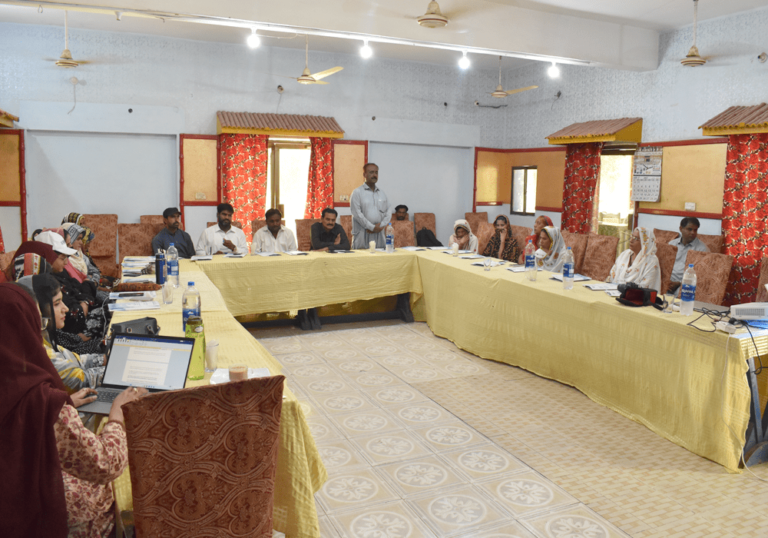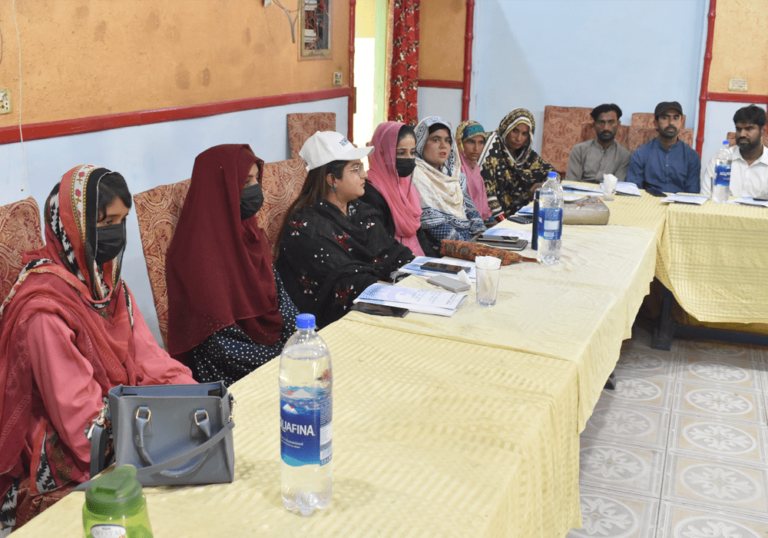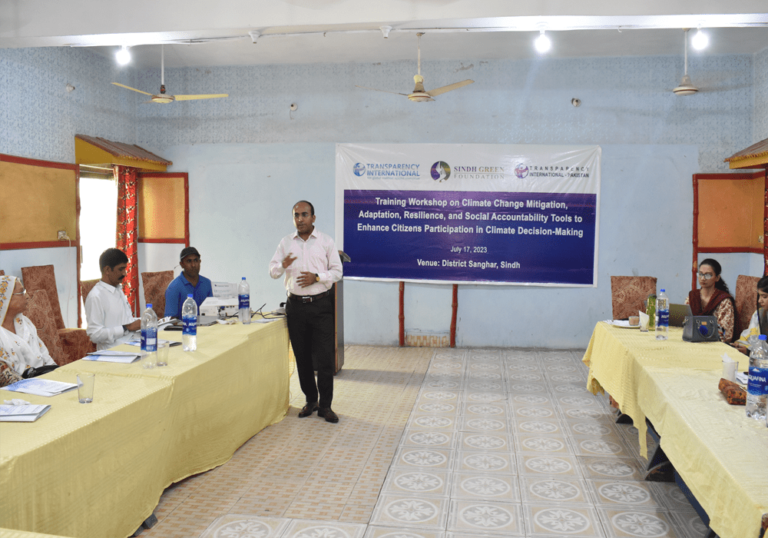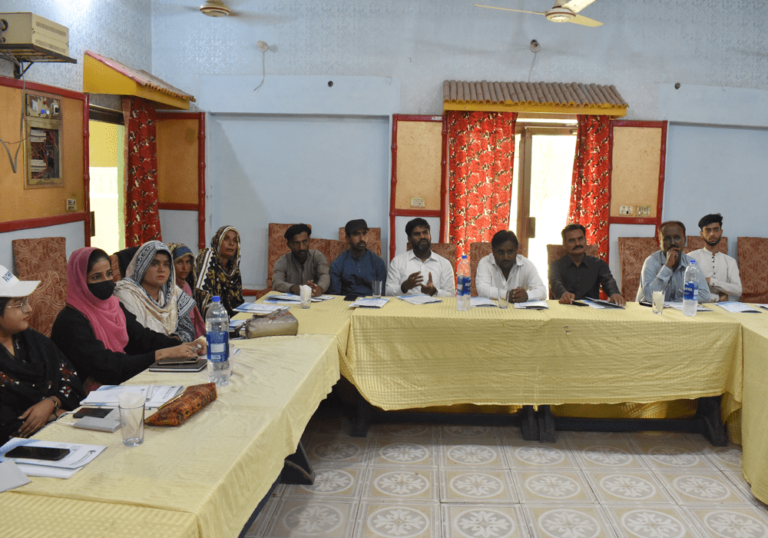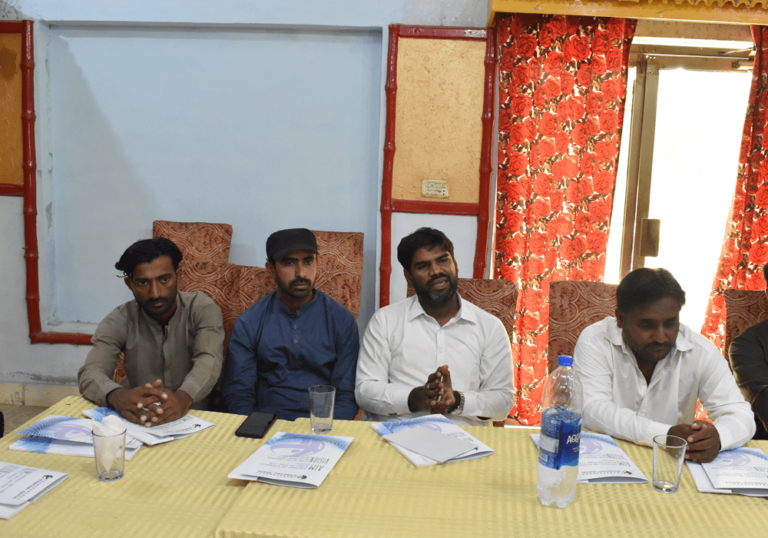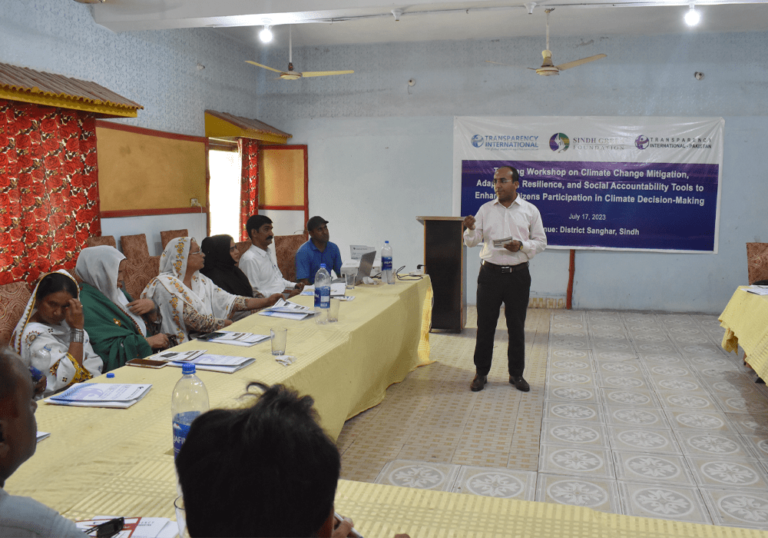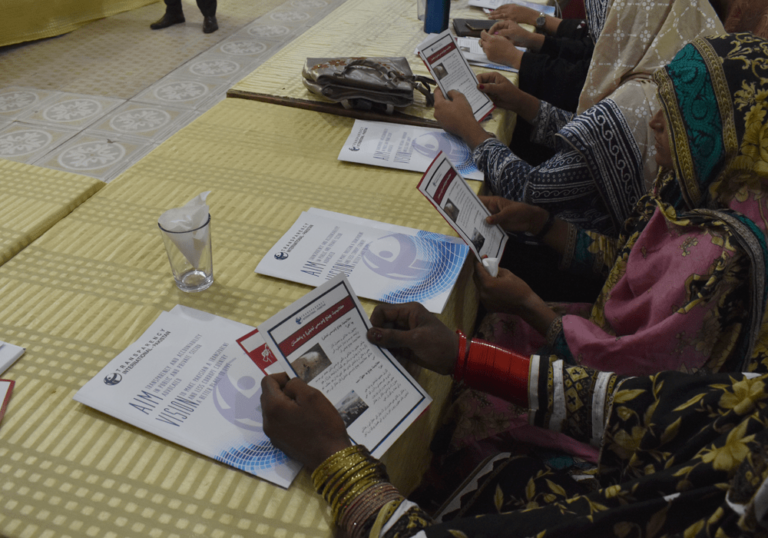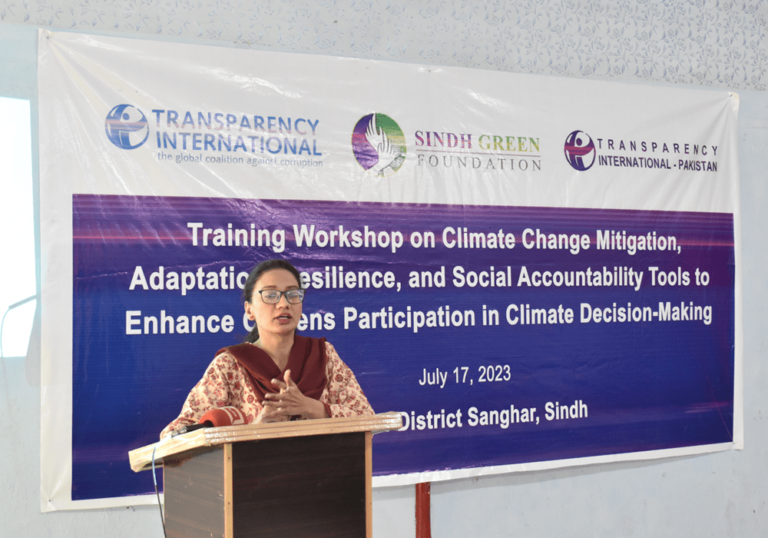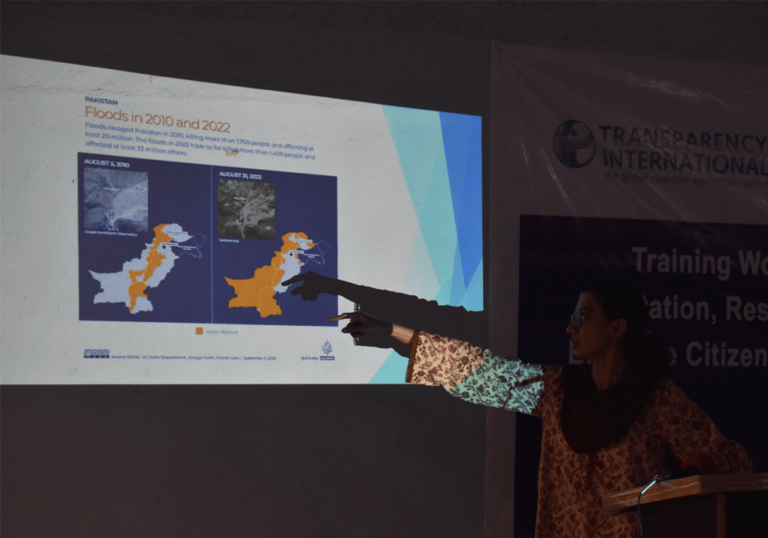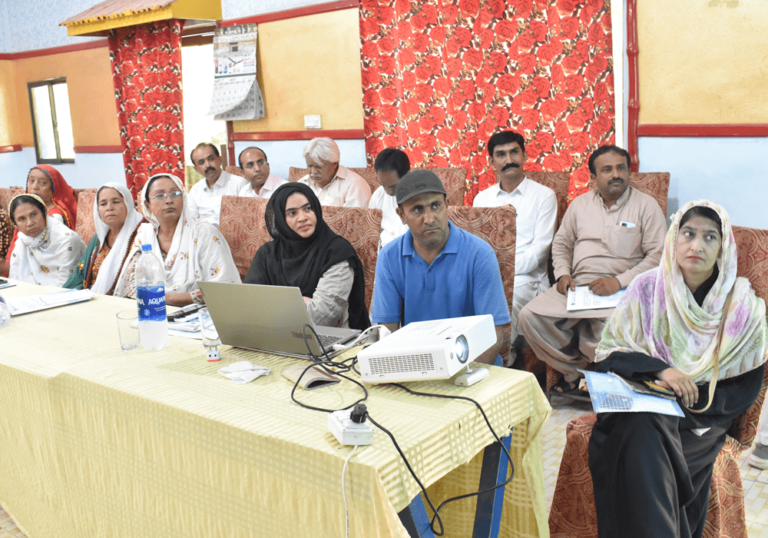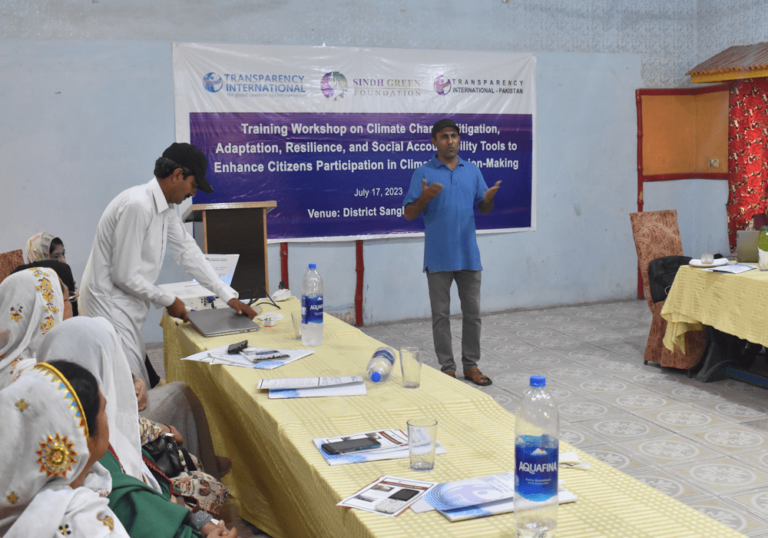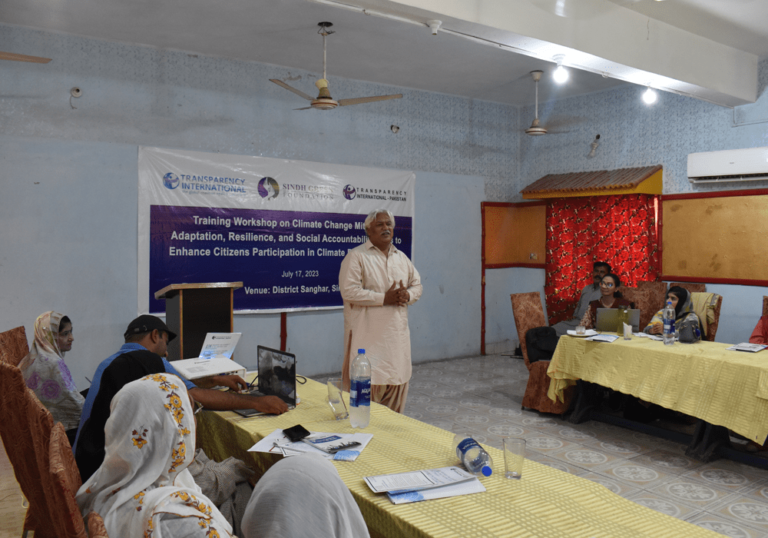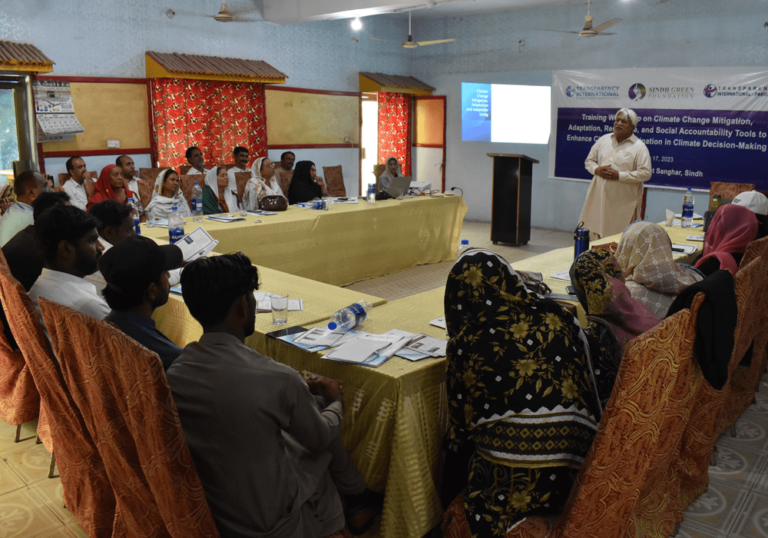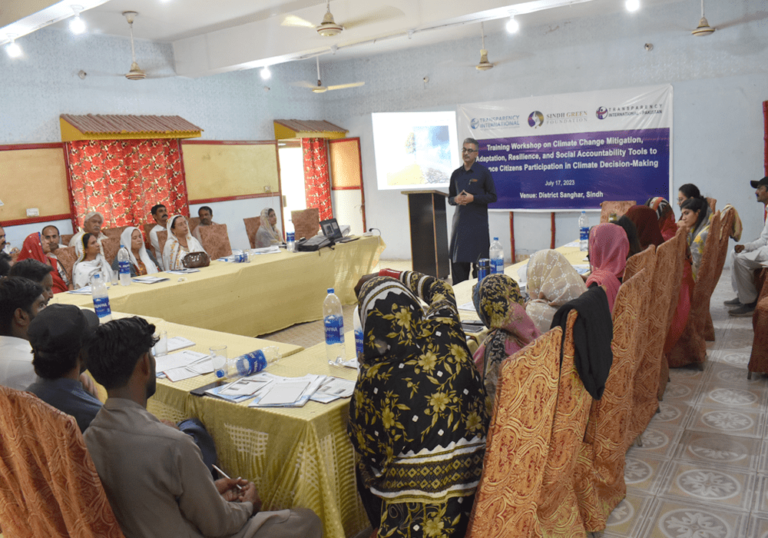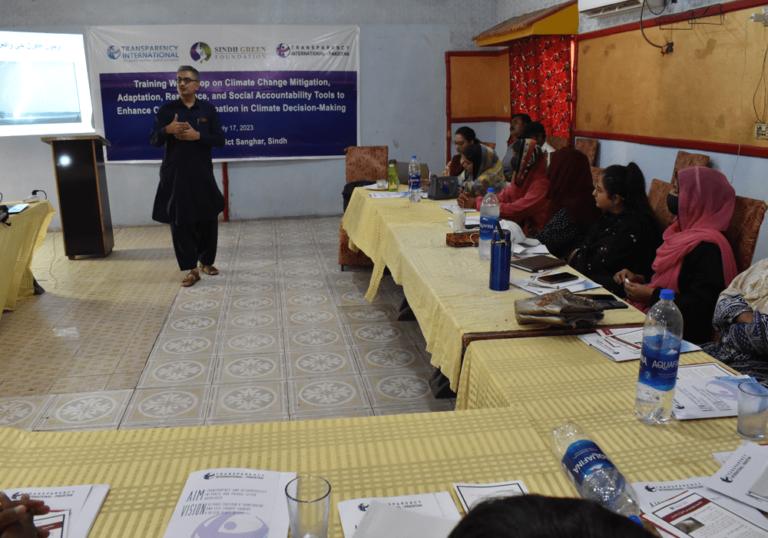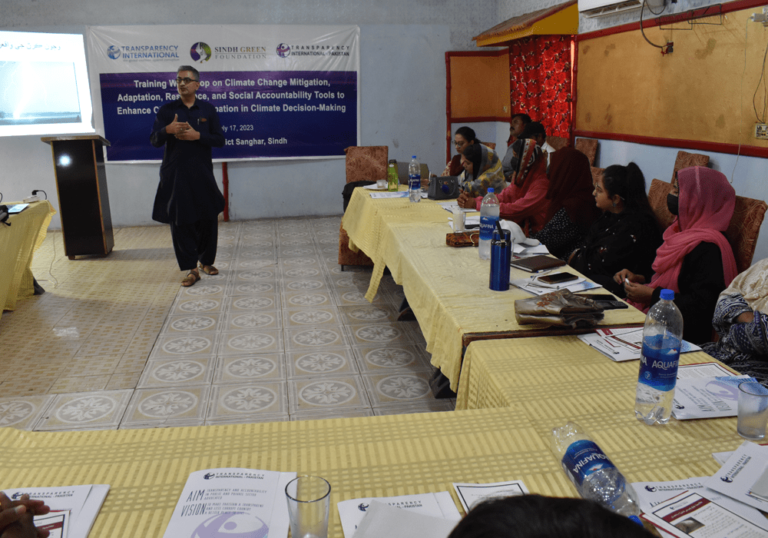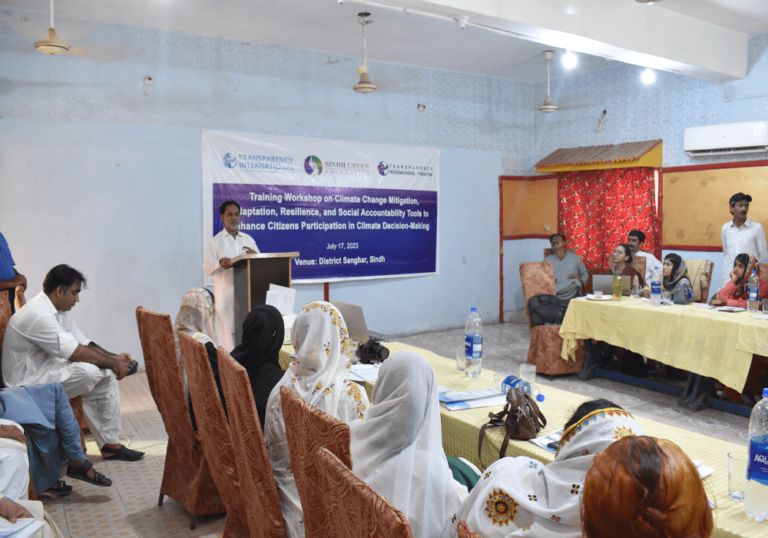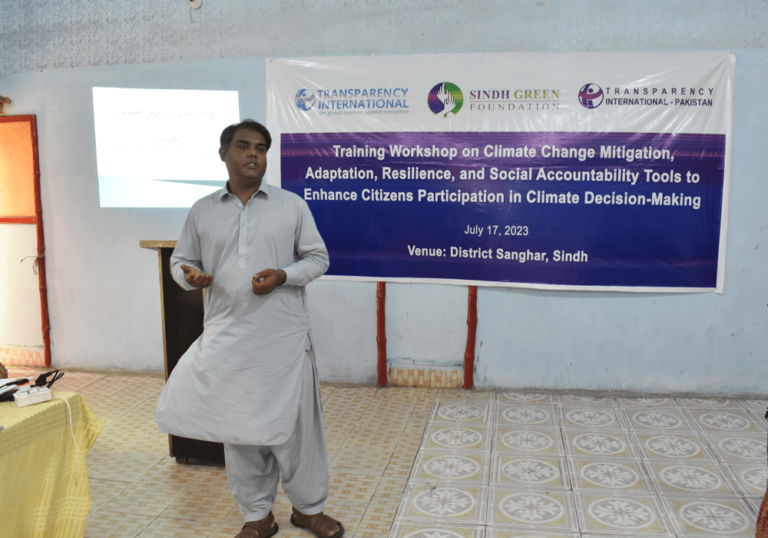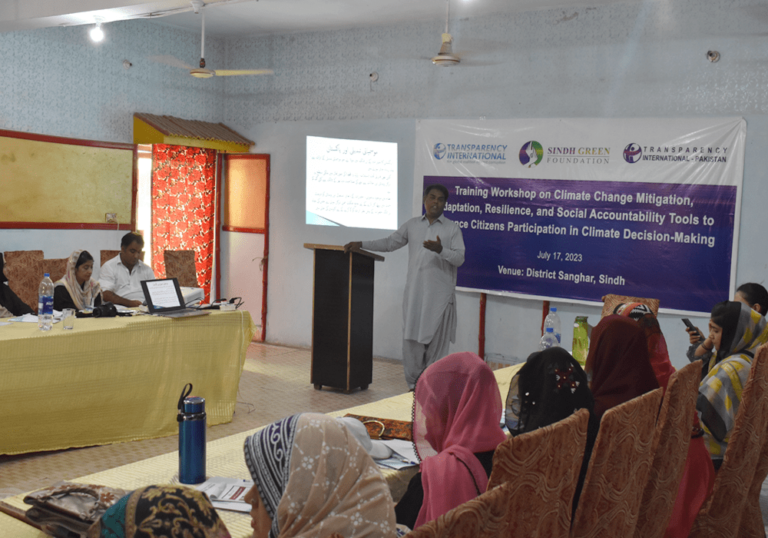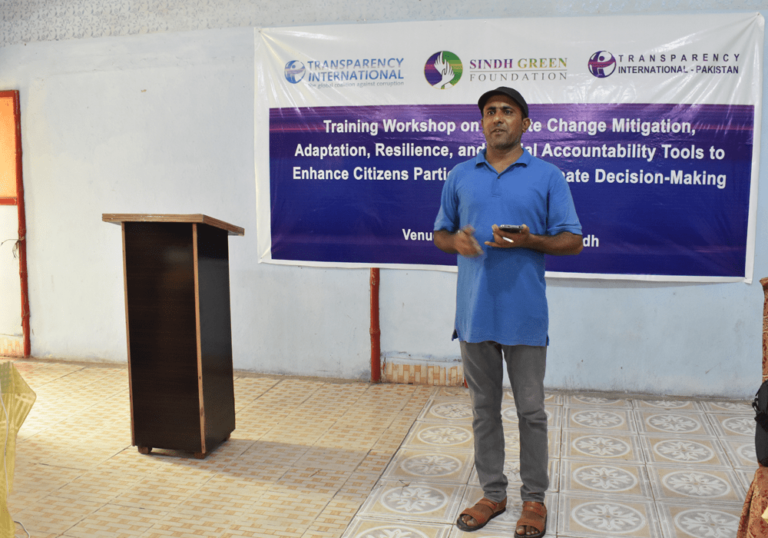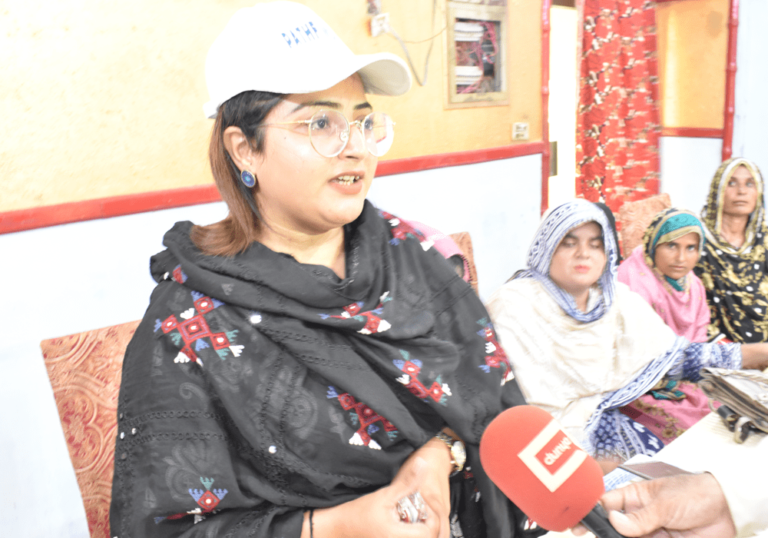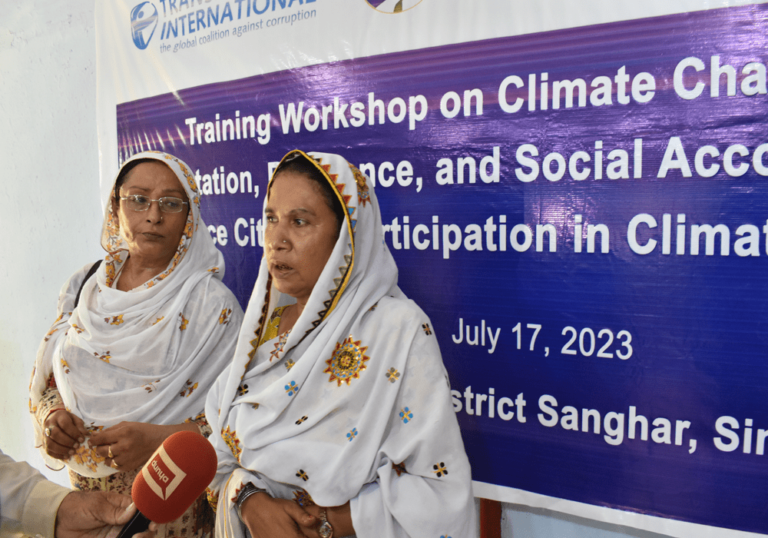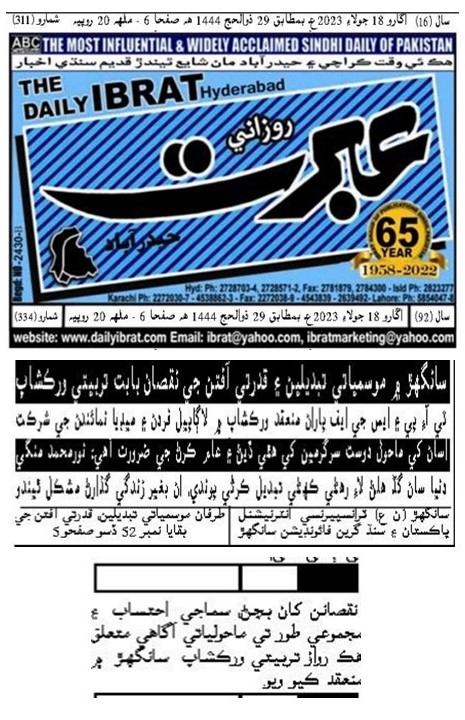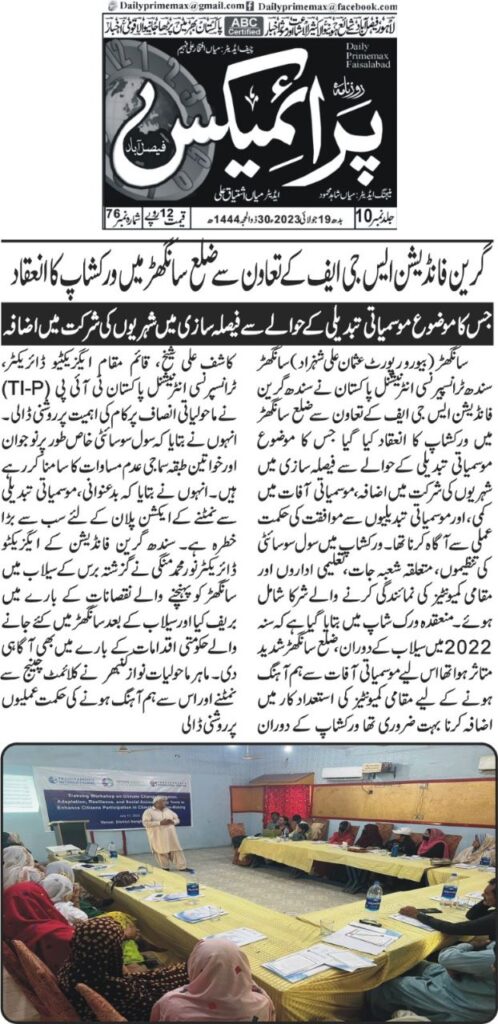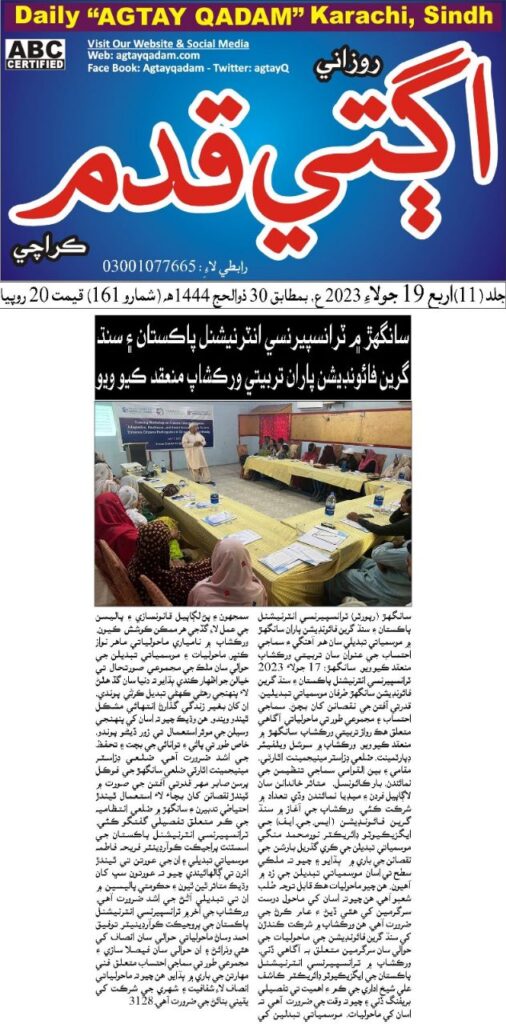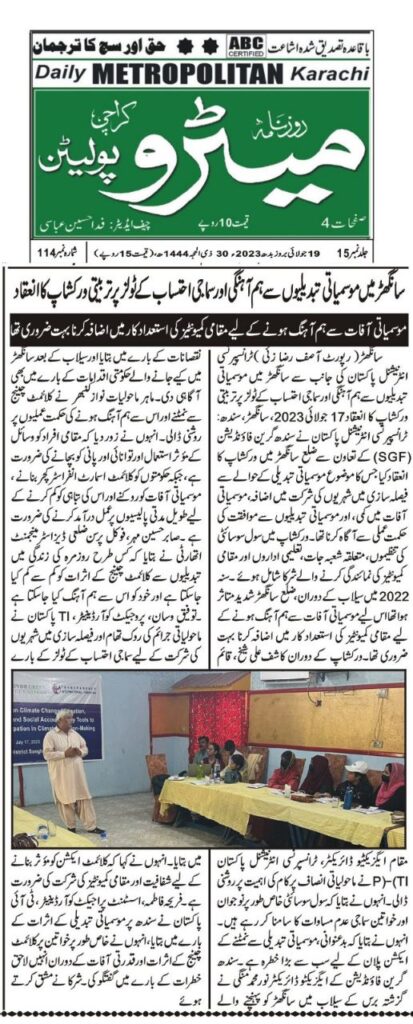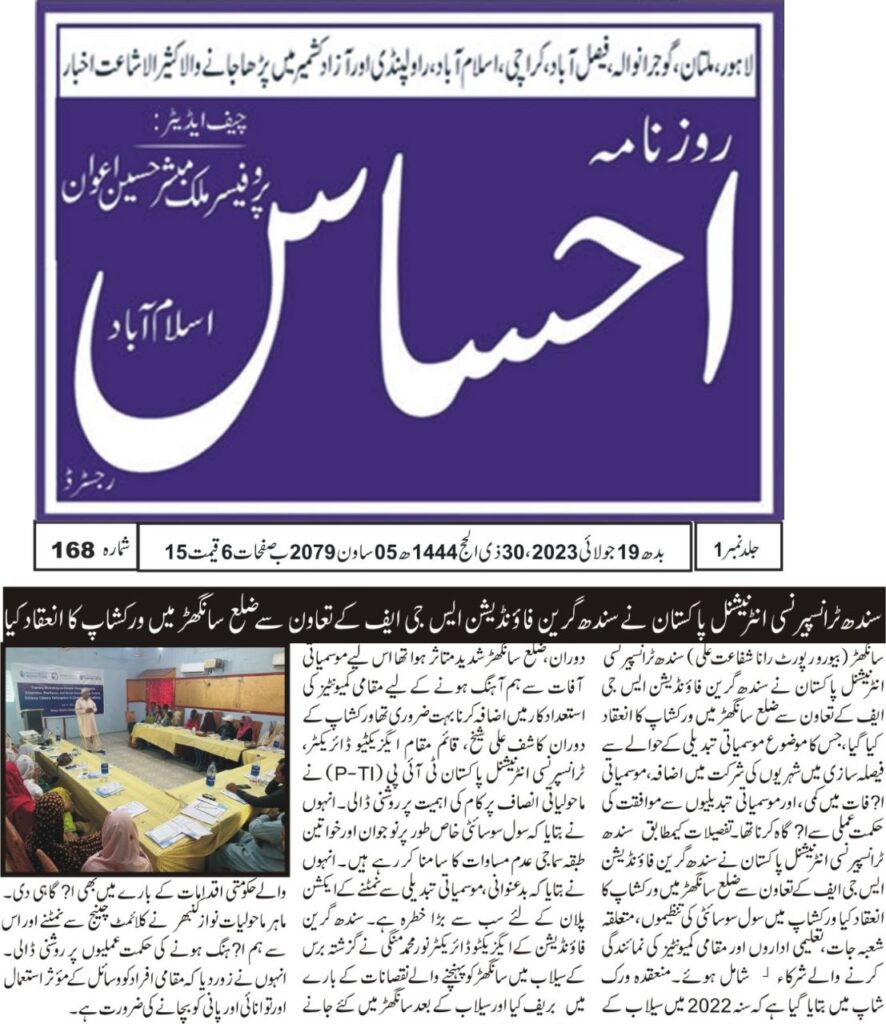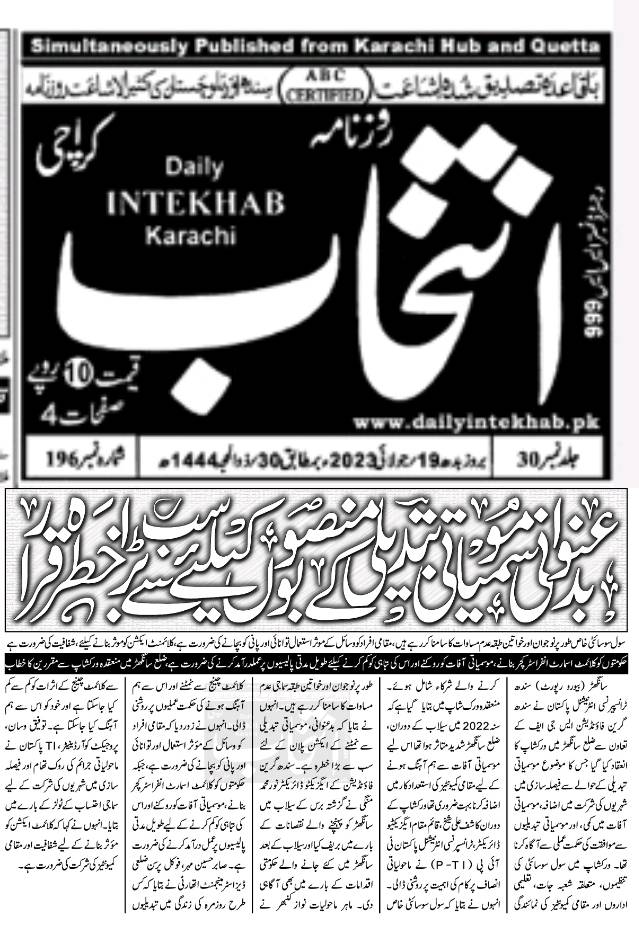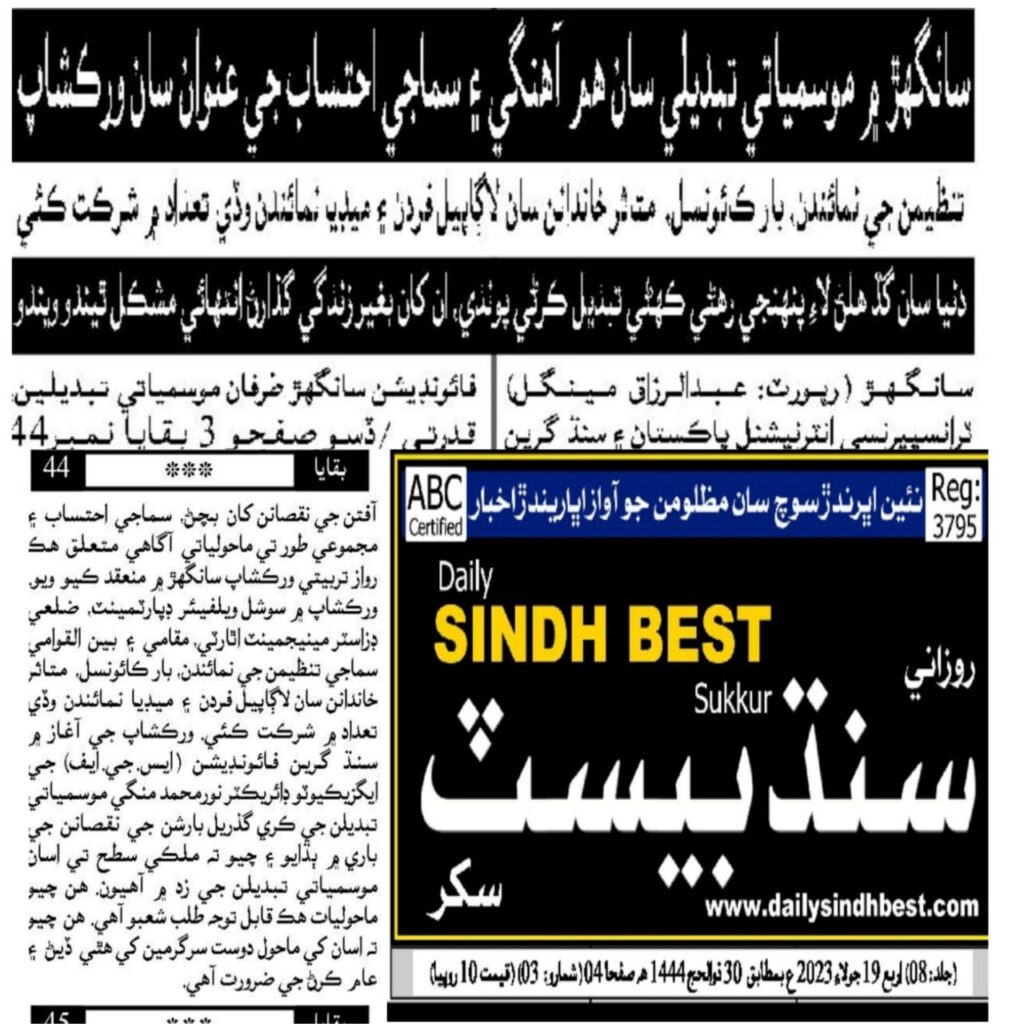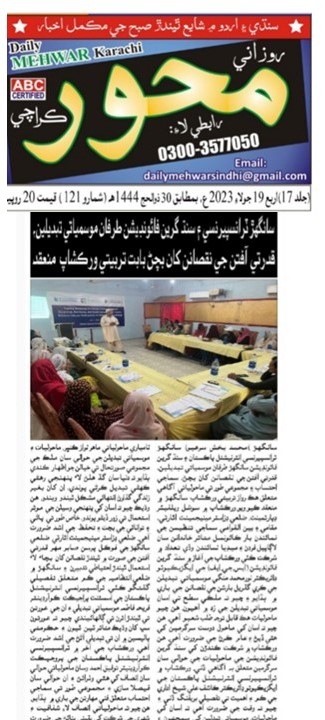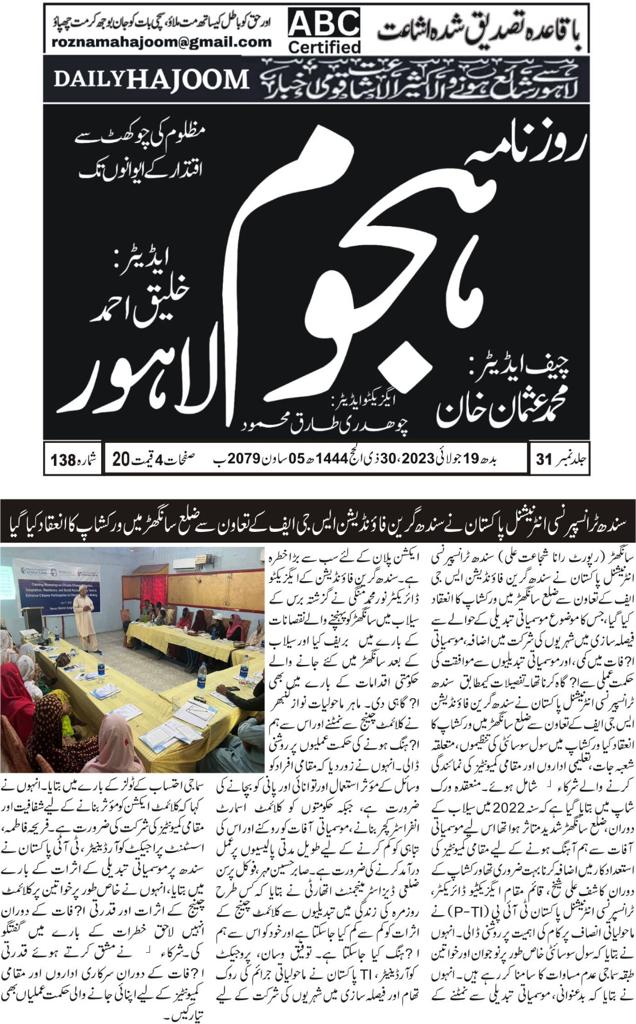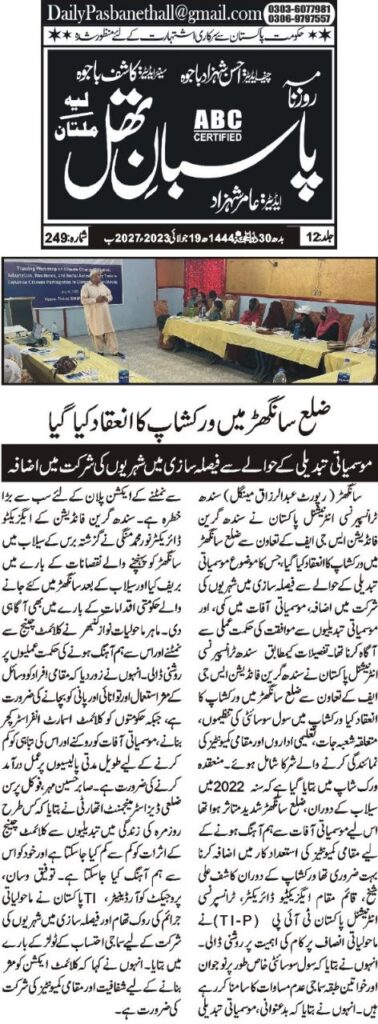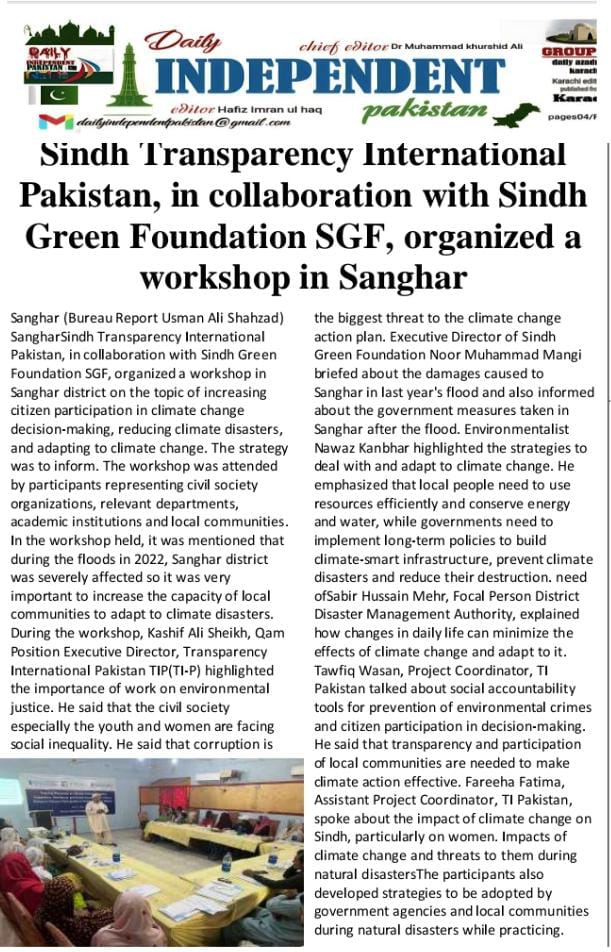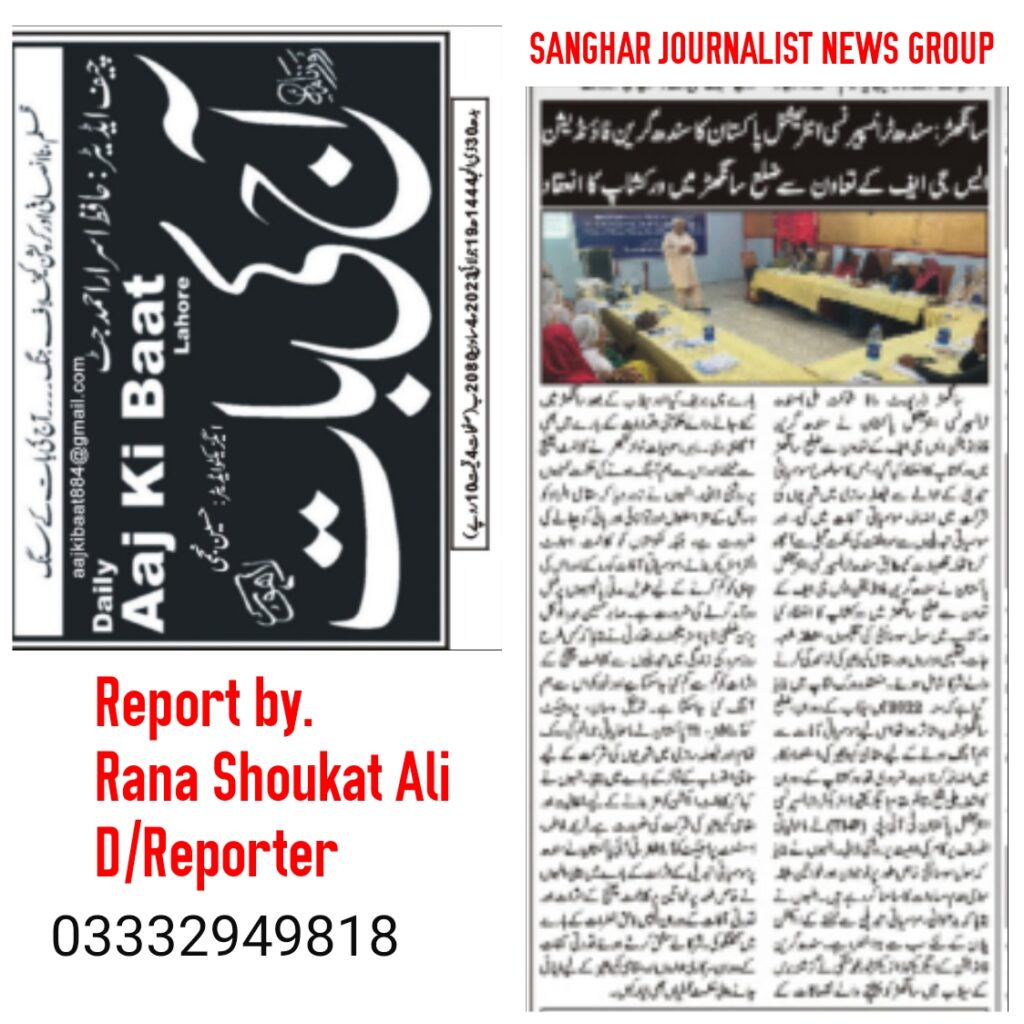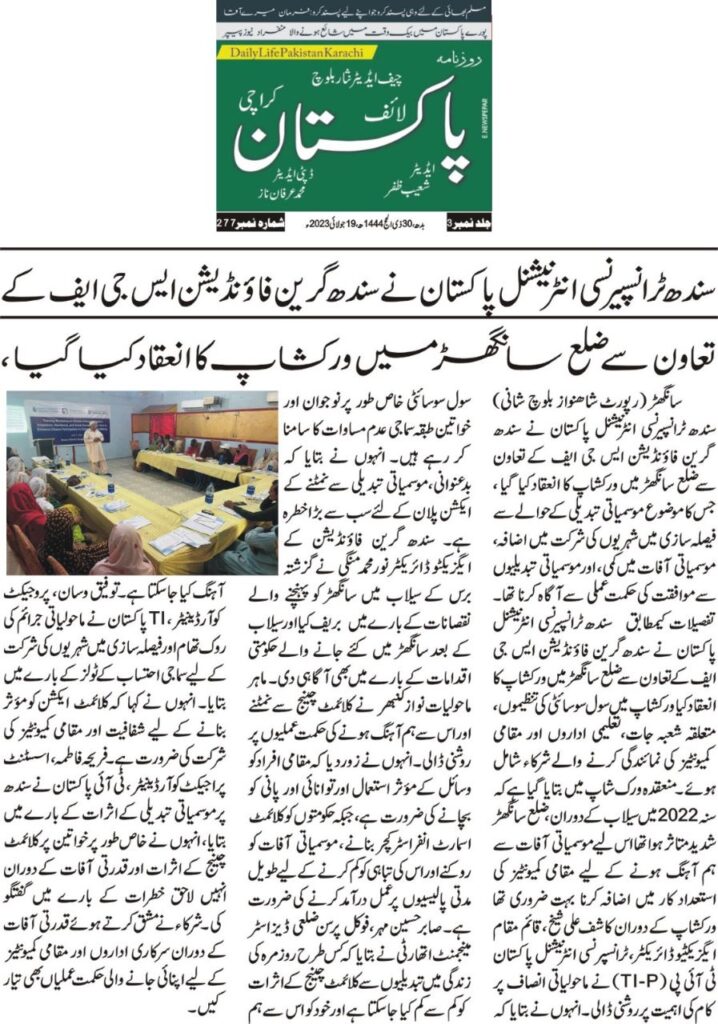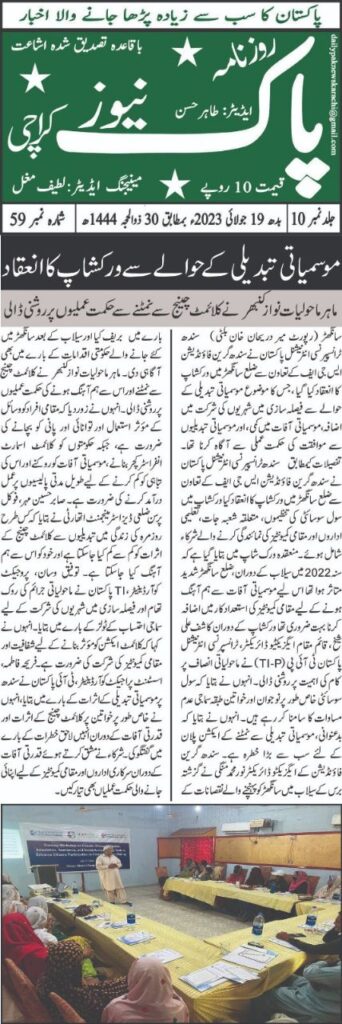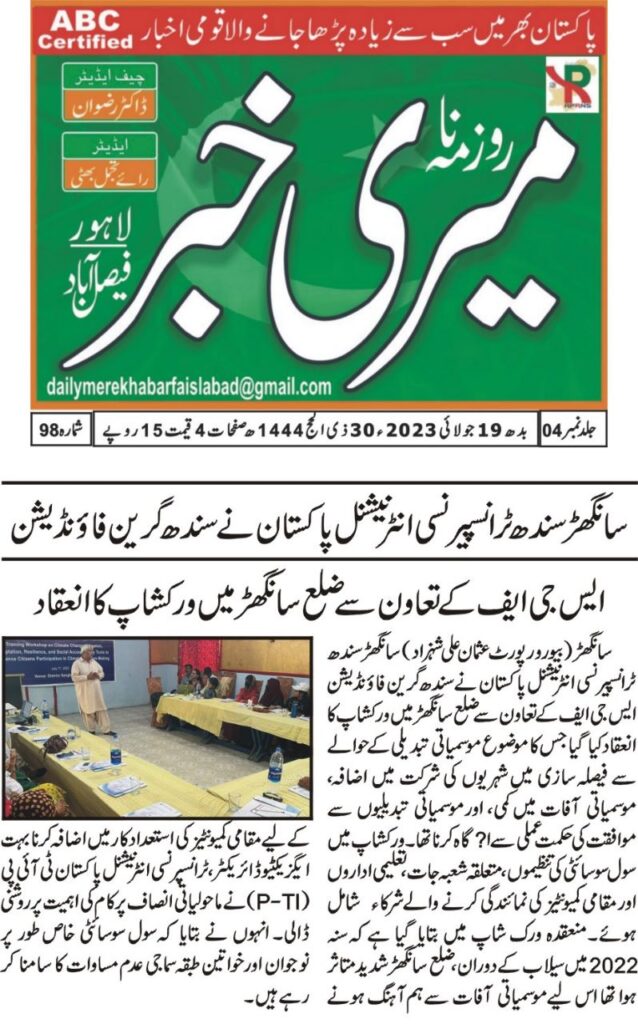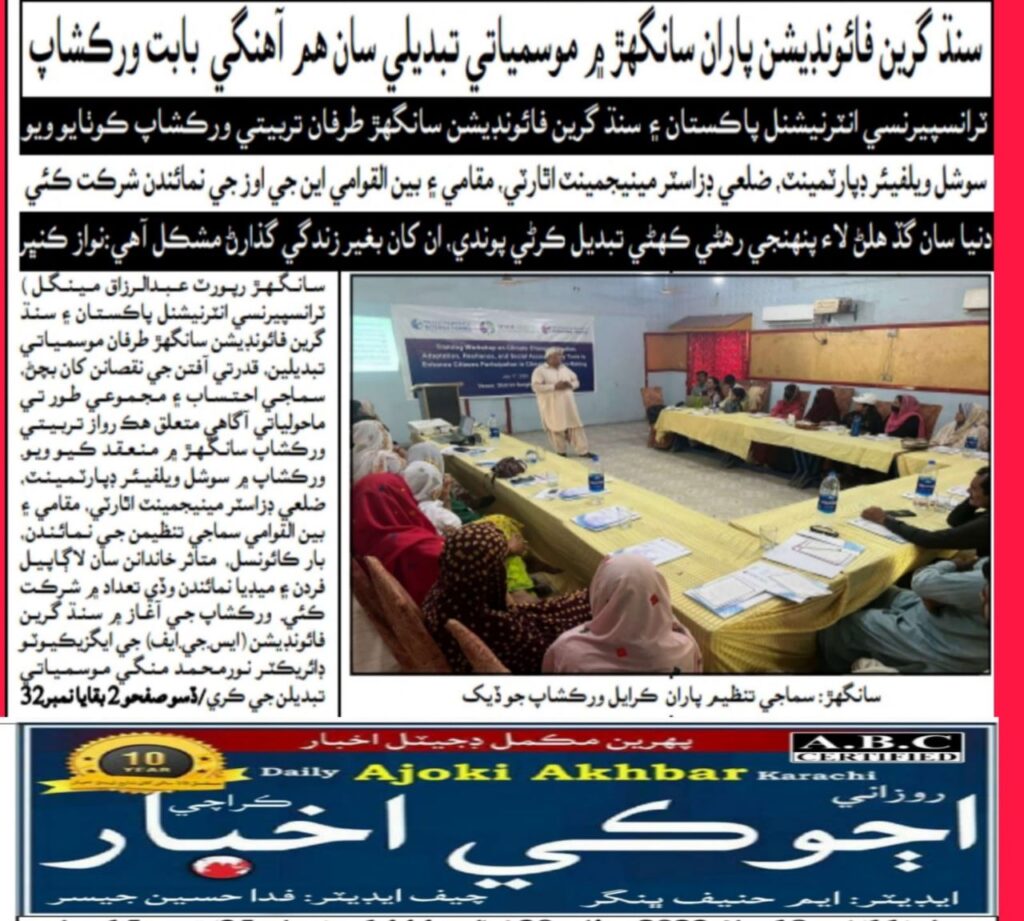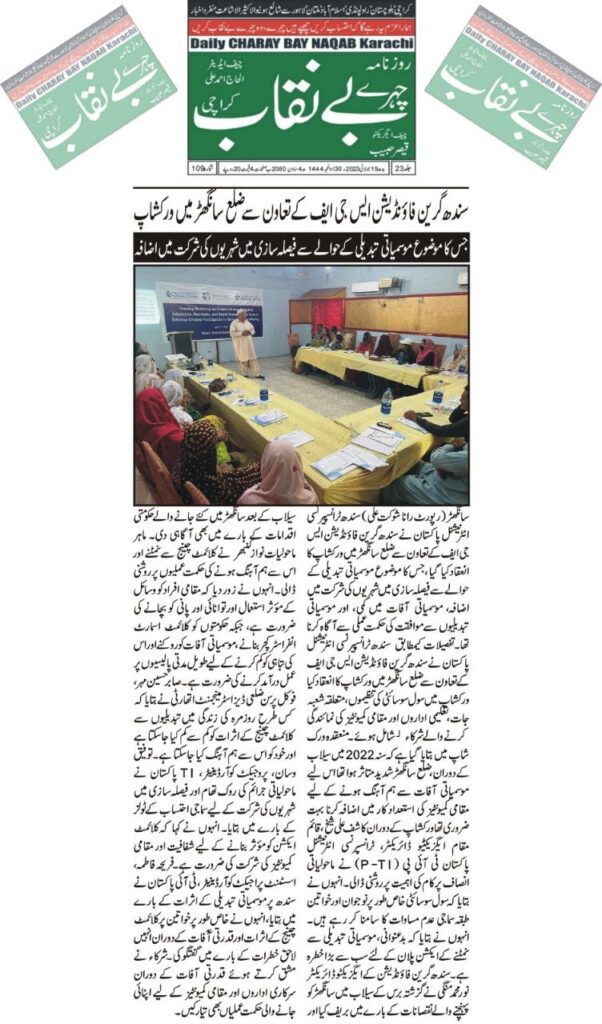- Home
- Training Workshop on Climate Change Mitigation, Adaptation, Resilience, and Social Accountability Tools to Enhance Citizens Participation in Climate Decision-Making
Training Workshop on Climate Change Mitigation, Adaptation, Resilience, and Social Accountability Tools to Enhance Citizens Participation in Climate Decision-Making
Training Workshop on Climate Change Mitigation, Adaptation, Resilience, and Social Accountability Tools to Enhance Citizens Participation in Climate Decision-Making
Venue: District Sanghar, Sindh
Date: 17th July 2023
Transparency International Pakistan organized Training Workshop on Climate Change Mitigation, Adaptation, Resilience, and Social Accountability Tools to Enhance Citizens Participation in Climate Decision-Making in District Sanghar, Sindh. The workshop was attended by Local Community Members, Youth, Civil Society Representatives, Representatives of District Social Welfare Department, District Disaster Management Committee, District Council Sanghar, Social Justice Forum Sanghar, Climate Change Experts, Journalists from District Press Club Sanghar, Women representatives from extremely affected Union Councils during Flood 2022 namely Sethar Pir, Bobi, Barhoon, Sadhnu, Asgharabad and Peru Mal. Around 53 participants attended the training workshop.
The main objective of the training workshop was to educate the communities on Climate Change Mitigation, Adaptation, Resilience, and Social Accountability Tools to Enhance Citizens Participation in Climate Decision-Making, and empower them with the skills to identify and report environmental corruption.
The event started with the recitation of the Holy Quran and a round of introduction was held after which Mr. Noor Muhammad Mangi Executive Director Sindh Green Foundation briefly explained the scenario of District Sanghar, the effects of the climate change on the area and shared that the District Administration declared 73 Union Councils of Sanghar District as flood affected.
Afterwards Mr. Kashif Ali Shaikh, A. Executive Director, Transparency International Pakistan gave an overview of the Climate Governance and Integrity Programme. He briefly explained the situation of climate change in Pakistan and the policy gaps to ensure the resilience and adaptation. He said corruption is the main cause behind the vulnerability of affected communities due to any disaster. He informed the participants that TI Pakistan has setup Legal Advice Centre and urged to report any kind of corruption at district level so that the same can be sent to the anti-corruption institutions for necessary action.
Afterwards Ms. Fariha Fatima, Assistant Project Coordinator, Transparency International Pakistan conducted the session on impacts of climate change and corruption on women. She said that in disasters women are facing issues like displacement from their native place to relief camps where they do not have minimum facilities to survive with their children and family. She explained how climate change and corruption hit women differently than men. Women suffer with harassment and domestic violence during and after disasters. They do not have access to clean water, safe toilets, medical facilities, and education during the disasters. A rise in child marriages is also seen in effected areas. Malnutrition and lack of psychological support also effect women badly.
Afterwards, Mr. Nawaz Kunbhar, Writer, Trainer and Climate Change Expert engaged participants by leading an interactive session. He started with very basic questions and asked participants about their understanding of climate, mitigation and adaptation. He shared some mitigation tips and said that mitigation helps to address the cause of the problem. He explained adaptation which refers to making changes to human and natural systems to respond to the future impacts of climate change. Adaptation attempts to address the effects of the problem. He also shared changes in life practices and tips for adaptable living.
Afterwards Mr. Sabir Hussain Mahar, Trainer and Focal Person, District Disaster Management Committee Sanghar conducted the session on basic concepts and terminologies in disaster management, climate disaster risk, mitigation and risk reduction. He provided basic awareness on disaster, hazard, risk, elements at risk, vulnerability, capacity, response, relief, rehabilitation, reconstruction, development, mitigation, preparedness and prevention. During his presentation, participants were asked to identify between vulnerability and capacity from their daily life practices. He also spoke on the importance of District Disaster Management Committee and coordination mechanisms among the institutions during any disaster situation and shared some disaster risk management tips.
Afterwards, Mr. Toufique Wassan, Project Coordinator, Transparency International Pakistan conducted a session on social accountability and citizen’s engagement in policy making. He said the government departments should initiate consultation process with citizens as they can contribute according to their needs. The allocation of financial resources must be utilized for the well-being of communities furthermore; government institutions should prepare a citizen budget document and ensure to translate that document in local language so everyone can understand about the government planning for the fiscal year. The citizens can use Sindh Transparency and Right to Information Act 2016 to highlight/ask the public institution about the utilization of funds, planning of development schemes and execution status by using Sindh RTI Law as social accountability tool to play their part in promoting accountable and transparent governance structures.
Towards the end Q/A session was held where participants interacted with trainers.


